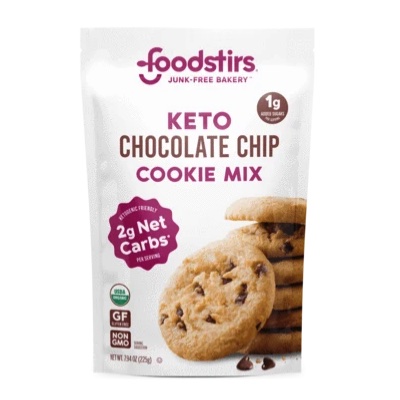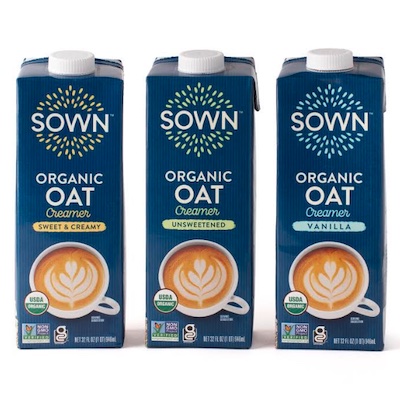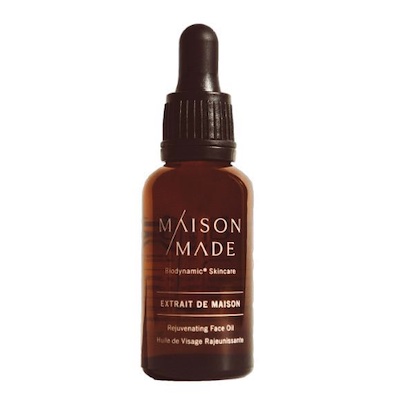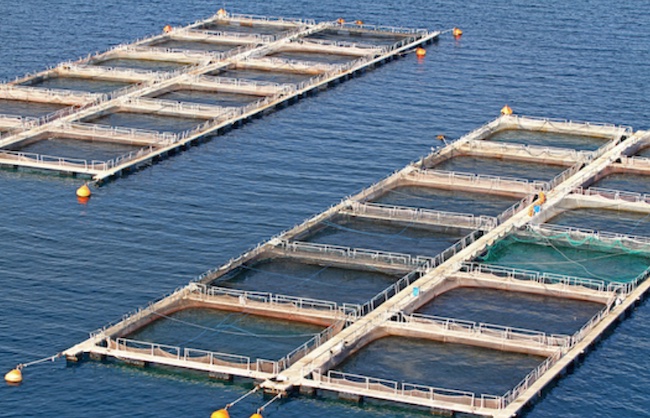
With Ocean-Based Aquaculture Already Recommended for Approval in Organic, is Wild-Caught Fishing Next?
If you find our work valuable to the organic movement, please consider becoming a Premium Subscriber. We accept no advertising and rely 100% on individuals and companies that want to support independent, organic food journalism. Thank you.
In its quest to eliminate regulations within the federal government, the previous administration did the organic industry a big favor — almost certainly, without realizing it — when it decided to shelve the idea of adding organic labels to fish.
But just a few short months into the Biden presidency, it is rapidly back on the agenda.
Last week, the USDA announced that tomorrow, March 18th, the agency will be holding a virtual town hall to evaluate wild-caught fishery systems and to assess the feasibility and appropriateness of developing organic standards for wild-caught seafood. If it is eventually approved, the deleterious impact on the integrity of the organic seal will be severe.
LONG HISTORY, MANY PROBLEMS
The history of “organic fish” at the USDA and National Organic Standards Board (NOSB) is a saga that has been dragging on for more than two decades. After years of deliberation, the NOSB submitted various formal recommendations to the USDA, from 2007 to 2009, about ocean-based aquaculture. Since that time, both the Obama and Trump administrations failed to push through the proposed rule, leaving it to languish.
Now, USDA Secretary Tom Vilsack and his agency appear poised to finally take action.
Organic is a production method of farming, and catching wild fish at sea is hunting and gathering. We have absolutely no idea how these fish have been impacted by their environment, and there is no way to guarantee that they have consumed 100% organic feed, a legal requirement for all organic food.
Similarly, with the ocean-based aquaculture recommendations that were submitted to the USDA several years ago, there is no shortage of problems.
In its report Like Water and Oil: Ocean-Based Fish Farming and Organic Don’t Mix, the Center for Food Safety outlines the key reasons why the proposed organic aquaculture recommendations are flawed and why ocean-based farms are completely incompatible with organic standards; namely, fish farms at sea pollute the marine environment, pose risks to wild species and aquatic ecosystems, cannot prevent escapes and cannot contain or control inputs and outputs. They were so controversial that 53 different organic, environmental and fishing organizations signed a statement opposing specific aquaculture practices that were included in the proposed recommendations.
“Wild-caught fishing methods and the proposed aquaculture standards are not organic, and fish produced or caught in these unsustainable ways are the complete opposite of what organic consumers expect. By pushing this agenda forward, the USDA continues to undercut the integrity and meaning of the organic standard,” said George Kimbrell, Legal Director of the Center for Food Safety.
When it comes to both wild-caught fishing and ocean-based aquaculture, what also must be considered is enforcement and the massive challenge it will be for certifiers. As it is now, certain organic certifiers — not to mention the USDA — are turning a blind eye to massive factory dairy farms. And this is on land.
What happens when these fish farms are at sea, the complexities are much greater and keeping oversight of the inputs and farming rules becomes exceedingly difficult, if not nearly impossible?
That being said, experts do believe that a land-based, closed-loop, recirculating organic system could be feasible, as long as substantial field-testing is conducted to meet the standards demanded by the Organic Foods Production Act.
POWERFUL INTERESTS PUSHING A LOW PRIORITY ISSUE
For industry observers, the timing of the reemergence of this organic fish issue is a curious one.
First, passing organic fish standards is a very low priority.
The USDA could be spending its energy and resources finalizing the Origin of Livestock rule (something that is decimating the livelihoods of small organic dairy farmers), rewriting a completely flawed and discriminatory GMO-labeling rule, fighting against fraudulent organic imports, eliminating the illegal allowance of hydroponics, cracking down on organic factory farms and addressing the incredible discrepancy in production methods across many sectors of organic.
Second, in the USDA press release announcing this town hall, it said, “Congress has urged” the USDA to consider wild fish as organic.
While the USDA did not mention Sen. Lisa Murkowski (R-AK) by name, she was quoted in 2003 as saying that “wild salmon from the pristine waters of Alaska are as close to ’natural’ or ’organic’ as any product of any type anywhere. Alaska salmon is as wholesome, if not more, than any other organic product on the market.”
Furthermore, in that same year, she and her colleague, former Sen. Ted Stevens, introduced legislation to allow Alaska salmon and other wild fish products to be labeled as organic. Both senators are on the record supporting this action. (Sen. Stevens passed away in 2010.)
But Sen. Murkowski may now be particularly motivated to get wild fish approved as organic. And for good reason.
If the previously proposed aquaculture rule is sufficient for the current USDA and does not need to reviewed again by the NOSB, organic ocean-farmed fish could potentially hit the marketplace before wild-caught Alaska salmon, something that would put her constituents at a severe marketing and operating disadvantage.
Hence, one could reasonably conclude that Sen. Murkowksi has her fingerprints all over this sudden town hall meeting.
THE COLLECTIVE MATTERS
It remains to be seen how the USDA will handle this “organic fish” issue and where it goes from here.
Yet, what it does speak to is something that is observed at every single NOSB meeting.
Because organic has become so popular with consumers and commands a premium in the marketplace, many producers want to be a part of it. And that invariably means rolling out the lobbyists, trade associations and special interest groups to try to expand the number of allowed ingredients, processes and rules.
This virtual town hall to discuss “organic fish” did not come out of nowhere. It was a well-orchestrated campaign backed by highly influential members of Congress.
What it demonstrates is that if individuals come together and push to have their voices heard, they can help shape policy.
But if individuals stay silent and do not come together, policy will undoubtedly be shaped for them.
Registration for tomorrow’s town hall can be found here.
 |
With gratitude, 
Max Goldberg, Founder |
Quick Hits
* Honor Thy Label: Dr. Bronner’s Unconventional Journey to a Clean, Green, and Ethical Supply Chain is now available for purchase, and as we wrote about in our last newsletter, it is a fantastic and inspirational read.
* Congrats to Linley Dixon, who has been promoted to Co-Director at the Real Organic Project.
* At the Login5 organic farm in Serbia – one of the world’s largest – half of the employees are developers, data analysts and engineers.
* The trailblazers who grew the roots of “organic” into a movement.
* Organic hydration drink HALO has added tennis star Andy Murray as a brand ambassador and investor.
* Why The Billion Agave Project is a game-changing, ecosystem-regeneration strategy.
* The historic partnership between D’Vash Organics and Al Barakah Dates Factory, the world’s largest date product manufacturer, is an opportunity to promote tolerance and understanding.
* Bio Local, an organic and fair trade retail concept, has opened at the Zürich Airport.
* A Maine prison engages inmates in organic farming and food education.
* In the heart of GMO farming territory, the Illinois Regenerative Agriculture Initiative has opened its door at the University of Illinois.
* Could bird-friendly organic coffee could become the next green trend?
* Be sure to join the Organic Food Industry club on Clubhouse.
New Organic Products
Keto Baking Mixes from Foodstirs
New from the Foodstirs Junk-Free Bakery™ is a line of organic keto baking mixes. Available in three flavors - Keto Chocolate Chip Cookie, Keto Brownie and Keto Chocolate Cake -- they all offer 2g of net carbs and less than 1g of sugar per serving. Glyphosate Residue Free, grain-free and gluten-free, the mixes can be found at Foodstirs.com, Whole Foods Market, Thrive Market and Amazon.Oat Creamers from SOWN
Sweet Syrup from PURIS
New from the Minnestoa-based pea company is PURIS Sweet Syrup, an organic alternative to sweeteners made from tapioca, rice and agave. Sourced from the U.S., gluten-free, plant-based and Glyphosate Residue Free, it is available in a range of dextrose equivalents (29DE, 42DE, 60DE).Biodynamic Rejuvenating Face Oil from Maison Made
Biodynamic personal care brand Maison Made has introduced Extrait de Maison, the company's foundational garden-to-bottle rejuvenating face oil. Measured and authenticated by independent 3rd party laboratories, it offers proven high potency and replenishing support through a synergistic complex of phytonutrients, omega fatty acids and free radical fighting antioxidants.
Weekly News Summaries


Ghosts of Past Pesticide Use Can Haunt Organic Farms for Decades
Researchers in Switzerland found pesticide residues at some farms that had been converted to organic more than 20 years ago.
Think Food Prices Are Going Up? You’re Not Wrong
By Jaya Saxena
Food prices are soaring around the world, due largely to the pandemic and severe supply chain disruptions because of climate change.

The Fresh Market files Paperwork for IPO
The specialty retailer may return to the public markets almost five years after it was acquired by Apollo Global Management for $1.36 billion.

EWG Releases 2021 Dirty Dozen and Clean 15
Topping the list of this year's worst offenders are strawberries and spinach. Avocados and sweet corn lead the Clean 15.
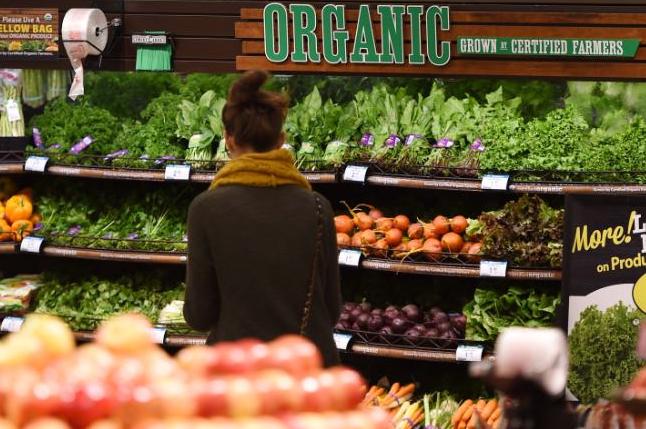

Grocery Stores' Pandemic Boom is Over -- Now What?
By Nathaniel Meyersohn

How Brands are Wooing Walmart’s Online Shoppers with Free Samples
By Melissa Repko
With in-store demos largely curtailed, new ways to get samples in the hands of consumers are emerging.

UNFI extends Distribution Partnership with Whole Foods Market
Despite the logistical prowess of Amazon, Whole Foods Market extended its distribution partnership with UNFI until 2027.
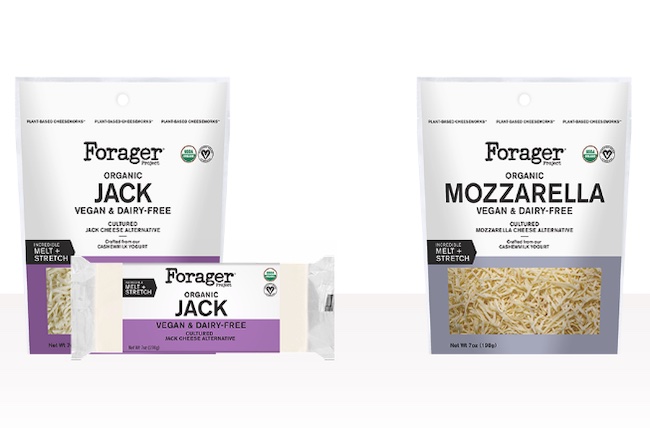

Will Dairy Providers Get into the Plant-Based Cheese Segment?
By Megan Poinski
New players and brands are bringing growth and innovation to the sector, while most traditional companies are hanging back.

Chipotle will Tie 10% of Executive Incentives to Environmental, Diversity Goals
By Julie Littman
The environmental targets include reaching 37 million pounds of organic, locally or regeneratively grown or raised food in 2021, up from 31 million pounds last year.

EPA: Politics Tainted Dicamba Decision
By Emily Unglesbee
EPA's past 2018 dicamba registration decision was tainted by political interference and ignored important science on the herbicide's very serious risks, according to an internal EPA email. Is anyone surprised?
Want to share this newsletter on social media? You can use this link: Newsletter Link
The material in this newsletter is copyrighted and may be reprinted by permission only. All requests must be in writing. Please use our contact form to request republication rights.
Newsletter Archive
Quick Hits
* Honor Thy Label: Dr. Bronner’s Unconventional Journey to a Clean, Green, and Ethical Supply Chain is now available for purchase, and as we wrote about in our last newsletter, it is a fantastic and inspirational read.
* Congrats to Linley Dixon, who has been promoted to Co-Director at the Real Organic Project.
* At the Login5 organic farm in Serbia – one of the world’s largest – half of the employees are developers, data analysts and engineers.
* The trailblazers who grew the roots of “organic” into a movement.
* Organic hydration drink HALO has added tennis star Andy Murray as a brand ambassador and investor.
* Why The Billion Agave Project is a game-changing, ecosystem-regeneration strategy.
* The historic partnership between D’Vash Organics and Al Barakah Dates Factory, the world’s largest date product manufacturer, is an opportunity to promote tolerance and understanding.
* Bio Local, an organic and fair trade retail concept, has opened at the Zürich Airport.
* A Maine prison engages inmates in organic farming and food education.
* In the heart of GMO farming territory, the Illinois Regenerative Agriculture Initiative has opened its door at the University of Illinois.
* Could bird-friendly organic coffee could become the next green trend?
* Be sure to join the Organic Food Industry club on Clubhouse.
